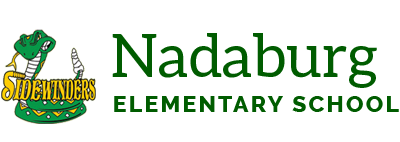Becoming Our Future, Every Student, Everyday!
Testing
Contact Us
Holly Diaz
Director Of Educational Services and Preschool
hdiaz@nadaburgsd.org
(623) 250-7748
Des Hockman
Curriculum Technologist
dhockman@nadaburgsd.org
State Assessments
Arizona's Academic Standards Assessment (AASA)
Grades 3-8 Testing:
AASA is the statewide achievement test for Arizona students in Grades 3-8. All Arizona public school students in Grades 3 - 8 will take the grade level AASA assessments in English Language Arts and Mathematics.
Spring 2025: March 31 - April 9, 2025, Writing must be completed by April 9, 2025
https://www.azed.gov/assessment/aasa
Arizona's Science Test (AZSci)
Grades 5th, 8th, and 11th Testing
The AzSCI assessment will be administered to students in Grades 5, 8, and 11 (Cohort 2024) in the 2024-2025 school year.
Spring 2025: March 17 - April 11, 2025
https://www.azed.gov/assessment/sci
ACT Aspire
Grade 10th Testing
ACT Aspire is the statewide high school achievement test, which will be administered to students in Grade 9/Cohort 2026 in Spring 2025. While ACT Aspire is being discontinued at a national level, ACT is supporting ACT Aspire as Arizona's Grade 9/Cohort 2026 Statewide Assessment.
Spring 2025: March 31 - April 25, 2025
https://www.azed.gov/assessment/high-school-assessments-act-and-act-aspire
ACT
Grade 11th Testing:
ACT is the statewide high school achievement test, which will be administered to students in Grade 11/Cohort 2024 in Spring 2025.
April 8 - 11 and April 14 - 18, 2025
https://www.azed.gov/assessment/high-school-assessments-act-and-act-aspire
Arizona English Language Learner Assessment (AZELLA)
The Arizona English Language Learner Assessment (AZELLA) is a standards-based assessment that meets both state and federal requirements to measure students’ English language proficiency. AZELLA is used for both placement and reassessment purposes. Students who have been identified as second language learners on the Home Language Survey take the AZELLA placement test, and the students’ proficiency scores determine appropriate placement for instruction. Students who have been placed into an English language learner program will also take the AZELLA reassessment once per year until they achieve proficiency. Students who have scored proficient on the AZELLA are then monitored for two years to help ensure success after their move into a mainstream classroom..
Spring 2025: January 27 - March 14, 2025
https://www.azed.gov/assessment/azella
Multi-State Alternate Assessment (MSAA)
The Multi-State Alternate Assessment (MSAA) is a comprehensive assessment system designed to promote increasing higher academic outcomes for students with significant cognitive disabilities in preparation for a broader array of post-secondary outcomes. The MSAA is designed to assess students with significant cognitive disabilities and measures academic content that is aligned to and derived from your state’s content standards. This test contains many built-in supports that allow students to take the test using materials they are most familiar with and communicate what they know and can do as independently as possible. The MSAA will be administered in ELA and Mathematics in Grades 3-8 and 11, and Science in Grades 5, 8, and 11.
In 2010 assessment was developed through the research and development done by the National Center and State Collaborative (NCSC) and will be carried forward by the MSAA State Partners. MSAA is currently administered by American Samoa, Arizona, the District of Columbia, Maine, The Marianas (Guam and the Commonwealth of Northern Mariana Islands), Montana, South Dakota, Tennessee, the U.S. Virgin Islands, and BIE.
Spring 2025: TBD
https://www.azed.gov/assessment/msaa
District Assessments
Benchmark Assessments
Benchmark assessment, also known as an interim assessment, is a system used to evaluate the academic competency of a selected group of students. These academic evaluations help institutions and relevant educational agencies see if the evaluated students are on par with current grade standards. These are administered 3 times within the year, August, November, and February.
Common Formative Assessments
Common formative assessments are unique because they are focused on a single unit of study, and essential learning standards, and provide teams of teachers with a tool for measuring student growth throughout the unit. More importantly, they allow teachers and students to make adjustments to ensure all students learn at high levels. These are provided at the end of a unit of study.
- Focused on Essential Learning Standards
- Measures Growth
- Teachers Use the Data to Make Adjustments
Real-Time Assessments
Simple and quick, real-time assessments and check-ins are excellent tools to spark conversation with your students, preventing your class from being a one-way transmission of information. By asking students simple questions and giving them the opportunity to answer, you can help increase their engagement. Showing interest in and concern for them through check-ins heightens emotional engagement. Checking for comprehension helps you know if students need further instruction on a topic, and helps them gauge their own learning for better metacognition. These are provided in every lesson.
